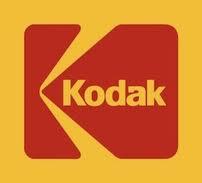
The bankrupt Kodak declared on Wednesday that it had sold its 1,100 digital camera patents for $525 million to two companies, RPX Corporation and Intellectual Ventures. The interesting thing about this deal was that RPX Corporation and Intellectual Ventures are not going to pay the total amount of $525 million to Kodak because they were leading a consortium of 12 intellectual property licensees, therefore each of them will pay a portion of the price tag.
These 12 licensees, who will pay the money towards the purchase of patents are all major tech companies: Samsung, Microsoft, Amazon, Adobe, Apple, Facebook, RIM, HTC, Google, Fujifilm, Huawei, and Shutterfly.
Although, the press release from Kodak did not mentioned these 12 licensees by name, they still would all get the rights to access the digital processing and imaging patents of this American multinational company along with other patents.
As the press release states that “Under the agreements, Kodak will receive approximately $525 million, a portion of which will be paid by 12 intellectual property licensees organized by Intellectual Ventures and RPX Corporation, with each licensee receiving rights with respect to the digital imaging patent portfolio and certain other Kodak patents.
Another portion will be paid by Intellectual Ventures, which is acquiring the digital imaging patent portfolio subject to these new licenses, as well as previously existing licenses.”
However, the official document did not reveal how much each of these tech companies will pay and nor it states what rights each licensee will have. But one thing is for certain that this huge amount will help Kodak solve its insolvency issues.
As the chairman and chief executive officer of Kodak, Antonio Perez said that, “This monetisation of patents is another major milestone toward successful emergence”.
Because “This proposed transaction enables Kodak to repay a substantial amount of our initial DIP loan [loans used to turn around a business], satisfy a key condition for our new financing facility, and position our commercial imaging business for further growth and success.”
Source: 9to5Google, Wired, BBC